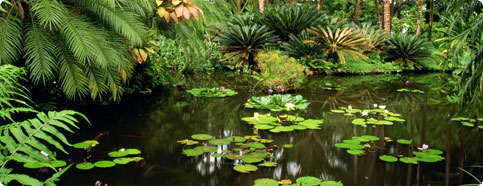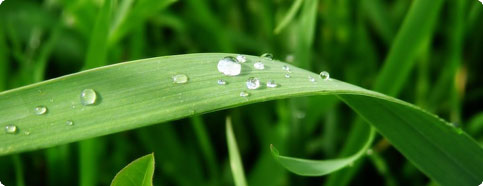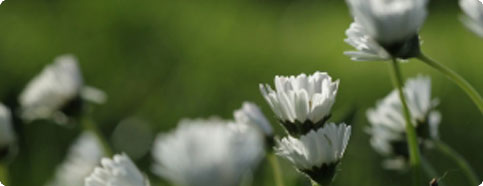Flora Library
Search for black knot fungus


















black knot fungus
Listing 1 - 10 from 40 for black knot fungus
black shank twigs and branches plant pathology resistant varieties chokecherry tree bud break motile spores infected plants rainy periods chokecherry trees growth stops fruiting bodies infected wood chemical control early spring black knots
HortNews- March 2006
... by rough, hard, elongated, black swellings that persist on infected plants. Black knot infections on a main scaffold branch (above) and smaller branches (right). Black knot fungus infects fruiting spurs, stems and ... knots may emerge from larger knots forming extensive galls. After the second year, the black knot fungus usually dies and the gall is invaded by secondary fungi that give old ...
hortparadise.unl.edu
Black Knot of Plums and Cherries, HYG-3011-94
... the tree. The black knot fungus can infect American, European, and Japanese varieties of cultivated plums and prunes. Sweet, tart, and Mahaleb cherries are also affected by the fungus, but are generally less susceptible than plum or prune. Occasionally, it may also infect apricots, peaches and other Prunus species. Symptoms The black knot fungus mainly affects twigs ...
ohioline.osu.edu
Questions On Cherry
... tree has black knot fungus. I’ve had professionals here to treat the disease with deep-root fertilization, but the disease continues. Every year I remove the limbs that have the black knots. This ... black knot fungus that has been running almost rampant in our region over the past few years. High moisture and wind conditions are the primary reason for the spread of this disease. The fungus ...
www.ext.nodak.edu
Questions On Chokecherry
... that the tree is deciduous, it is a chokecherry, and black knot fungus is infecting it. This is a difficult disease to control ... on other trees. (e-mail reference) A: There is a fungus, black knot, which has become so rampant that I no longer can ... black growth about 5 inches from the tip. It kills the trees and gets worse every year. What is it? (Linton, N.D.) A: That is a fungus known as black knot ...
www.ext.nodak.edu More from this site
Black Knot
... Black Knot Black Knot GardenLine | Common Saskatchewan Pests | Black Knot Black Knot is an extremely common fungus affecting both wild and cultivated species of the genus Prunus, which includes cherries, plums and mayday trees. Rough, elongated, hard black ... the fall, the branch will be noticeably swollen but may not be black in colour. The following spring the swelling continues to enlarge ...
gardenline.usask.ca
How To Recognize and Control Black Rot
... and Control Black Rot Fruit IPM Factsheet How To Recognize and Control Black Rot By: Sandra Perry and David Ritchie, Dept. of Botany and Plant Pathology Black knot, caused by the fungus Dibotryon ... wild plum and cherry thickets. Black knot strikes woody parts of the tree, which includes twigs, limb and sometimes, the trunks. SYMPTOMS The common name, "black knot", describes the main symptom of ...
www.canr.msu.edu
FD04 - BLACK KNOT OF PLUM AND CHERRY
... BLACK KNOT OF PLUM AND CHERRY Black Knot of Plum and Cherry Fruit Disease Information Note 4 (FDIN 004) D.F. Ritchie, Plant Pathologist The disease black knot is caused by the fungus Apiosporina morbosa (sym. Dibotryon morbosum). Black knot ...
www.ces.ncsu.edu
Black Shank
... are produced. During favorable conditions for the fungus, a new generation of motile spores is produced every 72 hours. The black shank fungus is spread when infested soil is moved ... Control of root-knot nematodes helps to ensure the effectiveness of resistant varieties and fungicides. In fields infested with both the black shank fungus and root-knot nematodes, the effectiveness of black shank ...
www.ces.ncsu.edu More from this site
Focus on Woody Plant Diseases - Black Knot
... Focus on Woody Plant Diseases - Black Knot Evergreen Trees & Shrubs Deciduous Trees & Shrubs Perennial Flowers En Español Needle Cast of Spruce The fungus Rhizosphaera kalkhoffii causes needle cast of spruce. It mostly occurs ...
www.urbanext.uiuc.edu
Black Knot
... Black Knot Evergreen Trees & Shrubs Deciduous Trees & Shrubs Perennial Flowers En Español Black Knot The fungus causing black knot is Apiosporina morbosa (Dibotryon morbosum). Black knot affects plums and cherries (wild, ornamental and edible ... may merge to make a large knot. In the second year the fungus in the knot dies except at the margins. The black knot is then invaded by secondary fungi ...
www.urbanext.uiuc.edu More from this site
These listings are filtered
View all for black knot fungus